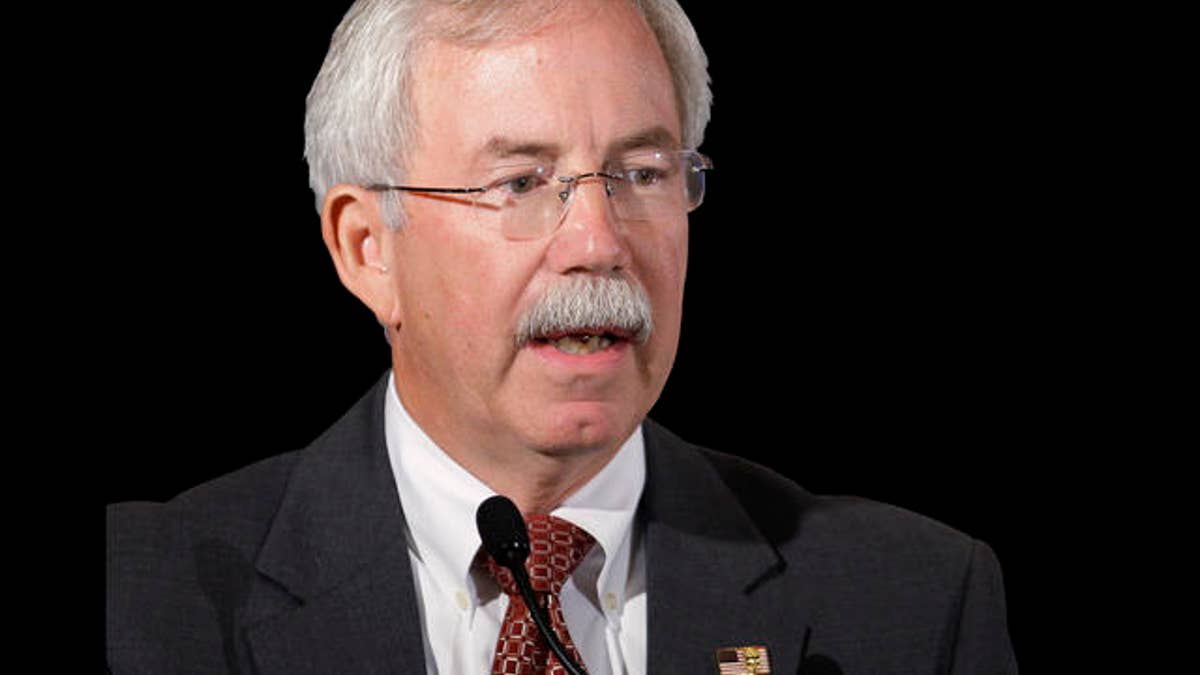
Kenneth Melson has been acting director of the ATF since 2009. (AP2009)
WASHINGTON -- The head of the Bureau of Alcohol, Tobacco, Firearms and Explosives has admitted that his agency, in at least one instance, allowed sales of high-powered weapons without intercepting them -- and he accuses his superiors at the Justice Department of stonewalling Congress to protect political appointees in the scandal over those decisions.
Acting ATF Director Kenneth Melson made the disclosures about the so-called Operation Fast and Furious in an interview with congressional investigators looking into the controversial anti-gunrunning initiative.
The operation was designed to track small-time gun buyers up to major weapons traffickers along the U.S. border with Mexico. Critics estimate that 1,800 guns targeted in the operation are unaccounted for, and about two-thirds of those probably are in Mexico.
Melson's acknowledgement is the first by any senior ATF leader that confirms some of the criticism that Republicans on Capitol Hill have been leveling at Fast and Furious. The objections have resulted in congressional hearings and an inquiry by the Justice Department's inspector general.
Rep. Darrell Issa of California and Sen. Chuck Grassley of Iowa, the two Republicans leading the charge in Congress against Fast and Furious, released a statement Monday noting Melson's testimony, along with a letter to Attorney General Eric Holder outlining their complaints.
The two lawmakers accuse Holder's department of "unsatisfactory responses and lack of cooperation" with the congressional probe, and Melson seemed to agree.
"It was very frustrating to all of us, and it appears thoroughly to us that the Department (of Justice) is really trying to figure out a way to push the information away from their political appointees at the department," Melson said in one quote highlighted by Issa and Grassley.
Melson is quoted as saying, "there were some mistakes made" in Fast and Furious by the ATF's Phoenix Field Division, but Melson said aides to Holder didn't want to admit those mistakes to Congress.
Melson spoke during closed-door questioning earlier this month by Senate and House investigators working for the two Republican lawmakers. Their letter to holder contained excerpts from Melson's testimony.
At a congressional hearing a month ago, three ATF agents said they were repeatedly ordered to step aside while gun buyers in Arizona walked away with AK-47s and other high-powered weaponry headed for Mexican drug cartels. So far, 20 small-time gun-buyers have been indicted, but the investigation is still under way.
Melson told the congressional investigators that after the criticism emerged he assigned a task force of agents to review the operation and he personally read all the operations' investigative reports that pertained to one defendant.
"I read through those and found ROIs (reports of investigation) that indeed suggested that interdiction could have occurred, and probably should have occurred, but did not occur," Melson said.
Melson said the ATF gave the reports about the failure to interdict guns in that instance to Justice Department superiors "because to me that was a smoking gun" and "we really needed to look at the rest of this particular case."
Melson also provided some support for complaints by Grassley and Issa that the Justice Department has been slow in producing documents the lawmakers have demanded.
"I think they were doing more damage control than anything" at the Justice Department, Melson said, according to one of the excerpts in the letter from Grassley and Issa to Holder.
In his statements to congressional investigators, Melson also said he understood that some potential defendants in the investigation may not be indictable because they are working as informants with other government agencies. Melson said he raised the issue with the deputy attorney general and with the Justice Department's inspector general.
The Associated Press contributed to this report.
